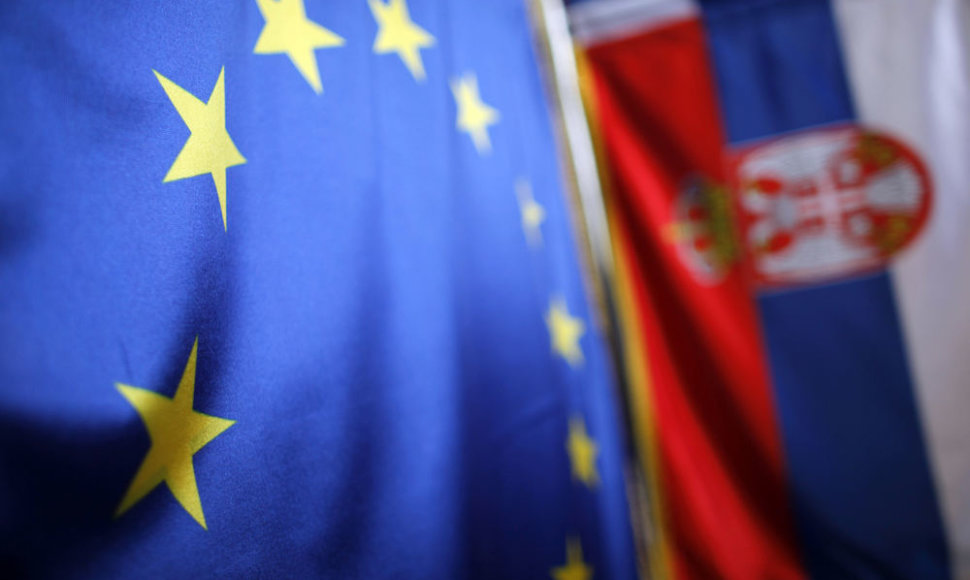Foreign Vice-Minister Vytautas Leškevičius, who represented Lithuania in Brussels on Tuesday, emphasized that the perspective of membership talks was the main drive for reforms.
Lithuania's relations with Serbia have been tense lately due to diplomatic clashes.
"If we were to rush with setting the date for the start of negotiations, we would forestall the evaluation of the reforms," Leškevičius said in a press release.
In his words, "it is in the interest of the whole EU to assess Serbia in an objective manner by the actual progress of reforms, not the promises it has made."
Some EU countries have called upon the EU to set a specific date in sign of appreciation of the progress made in the talks between Kosovo and Serbia, which has refused to recognize the former's independence.
According to the press release, the Lithuanian diplomat acknowledged a certain degree of progress made in the Belgrade-Pristina dialogue over the past months but said that the most complicated issues were yet to be addressed. He referred to business environment, superiority of law, and counter-corruption efforts.
"Before taking on new commitments, we must be certain that Serbia is willing to support EU accession aspirations with irreversible reforms under all membership criteria, including superiority of law, counter-corruption efforts, and business environment," Leškevičius said.
According to information available to BNS, other countries opposing the specific date were Germany, the Netherlands, and Romania.
Lithuanian officials have repeatedly said they were not happy with the Serbian treatment of Lithuanian investors. Lithuanian representatives have said that Alita, Arvi, and Sanitex were the largest Lithuanian investors in Serbia until their contracts were announced invalid.
A Lithuanian diplomat said on Tuesday that, although Belgrade has shown signs of readiness to improve the business climate, they still had to be ascertained.
Lithuania and Serbia have lately had tense diplomatic relations, as well. Earlier this year, Lithuania resented what it said was Serbia's unexpected proposition of a candidate for president of the United Nations (UN) General Assembly. The Serbian candidate triumphed over the Lithuanian nominee Dalius Čekuolis. The Serbian nomination was publicly supported by Russia.












